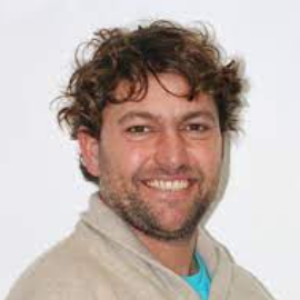Title : Development of new nanocomposites for the remediation of contaminated water
Abstract:
The development of new hybrid adsorbents based on polymers has opened new opportunities in terms of their application in the removal of contaminants, especially those present in aqueous systems. Among them, hydrogels constitute one of the most outstanding families in biological, medical and technological areas and today they play a fundamental role in sectors with high socio-economic impact. These basically consist of a soft and usually low-cost hydrophilic polymer, which forms a three-dimensional network and has the capacity to adsorb a large number of fluids without dissolve. On our platform we offer the development of nanomaterials with polymers and the design of new multifunctional filter systems, with adsorbent materials with a rigid structure, easy to use, resistant, reusable, with novel physical-chemical properties and with the possibility of being transferred to society or the world. productive medium.
Magnetic nanoparticles (MNPs) of iron oxides coated with polyacrylic acid (PAA), polyvinyl alcohol (PVA) ferrogels incorporating the MNPs, hydrogels in film format and PVA beads alone and combined with PAA, chitosan and sodium alginate, reinforced with natural and modified bentonite (national clay), hydrotalcite and carbon particles. As a result, a range of nanomaterials with different specific properties and functionalities has been obtained. In all cases, priority has been given to the implementation of low-cost and environmentally friendly raw materials, of simple and easy-to-apply techniques for obtaining them. The different developed materials that make up the platform have proven to be effective adsorbents of dyes of different chemical nature, metals such as Cadmium and Arsenic, anions such as nitrates and phosphates, and emerging contaminants such as antibiotics.
Audience take-away:
- Water pollution is a global problem far from being solved in a simple and low-cost way and the technologies available today are not within the reach of the majority of the affected population. The new adsorbent materials that we develop provide a simple and low-cost solution to these problems and are therefore of great interest to water treatment companies, governments and the general public.
- We intend that the knowledge or technology generated demonstrate the feasibility and economic and social profitability so that it obtains the interest of the productive sector for its implementation, in the manufacture of water filters, for example, and in the service sector, in the treatment of water in drinking water supply companies.
- The challenge of the working group is to generate high-impact scientific knowledge that contributes to value chains through the development of innovative products and the generation of high-tech enterprises that create jobs, allowing production to be differentiated based on the generation of competitive, dynamic, genuine and systemic advantages.



